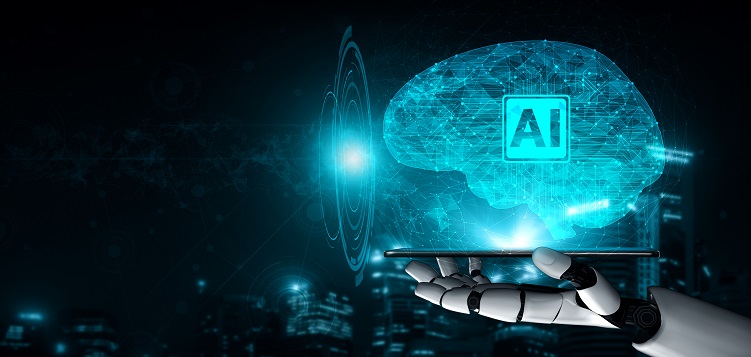Artificial intelligence (AI) is a technology that simulates human intelligence to perform tasks that typically require human beings’ intelligence. The importance of AI in modern life cannot be overstated. AI has made significant progress over the years and has changed the way we live and work. In this article, we will explore the advances in AI technology, the power of AI, examples of AI in healthcare and finance, the future of AI, the limits of AI, and why businesses need AI.
Advances in AI technology
AI has come a long way since its inception in the 1950s. Significant advances have been made, and today AI is an important part of modern life. Examples of big steps forward include IBM Deep Blue, which beat a world champion chess player in 1997, and Google’s AlphaGo, which defeated a human Go player in 2016. AI has impacted our lives and work in different ways, from intelligent personal assistants and recommendation systems to autonomous vehicles and robots.
Machine learning in AI
One of the most significant benefits of using AI is that it can understand data and improve its performance without being specifically designed. This is where machine learning (ML) algorithms come in. Machine learning is a subset of AI that allows machines to learn and improve on their own without being explicitly programmed. Using ML algorithms in AI makes it possible to identify patterns and make predictions based on vast amounts of data.
The Power of AI
AI is a powerful tool for businesses and people because it can learn and adapt to new information. AI can perform tasks that were previously impossible, such as identifying cancerous cells in medical imaging. AI can also automate tasks that used to be done manually, such as inventory management in retail. AI is not only useful in solving specific problems but also in uncovering hidden patterns and insights that can lead to new opportunities.
AI in Healthcare
AI improves patient outcomes by predicting diseases, identifying people at high risk, and creating personalized treatment plans. Machine learning algorithms can process vast amounts of data to identify significant risk factors for various diseases. For instance, AI can anticipate the probability of a patient developing heart attack or Alzheimer’s disease. AI can also assist in creating customized treatment plans for individual patient needs based on their medical history, symptoms, and genetics.
AI in finance
AI is used in finance to spot fraud, automate jobs that used to be done by hand, and give customers personalized financial advice. AI can analyze vast amounts of financial data in real-time, detect suspicious transactions, and reduce the time it takes to review loan applications, making the process faster and more accurate. AI can also analyze a customer’s financial behavior to provide personalized advice on saving, investing, and debt management.
The future of AI
The future of AI is exciting, but it will also bring new problems. AI has the potential to revolutionize many industries, including healthcare and finance. In the future, AI will likely be used for more complex jobs, such as finding new drugs, exploring space, and studying climate change. As technology progresses, it is essential to keep in mind the ethical and societal implications of using AI. It is vital to develop AI systems that are transparent, unbiased, and accountable.
The Limits of AI
While AI has the potential to improve our lives and work, it is important to consider the technology’s risks and limits. AI can be susceptible to biases, errors, and unethical practices. For example, facial recognition algorithms may be biased against specific ethnic groups, leading to wrongful arrests. Additionally, AI can also be manipulated by malicious actors for their own purposes, such as spreading fake news or causing financial instability.
Why Businesses Need AI
Businesses that use AI are more likely to be successful in the future. AI can help businesses identify market trends, forecast demand, and provide better customer service. By using AI, businesses can automate repetitive tasks and focus on more strategic initiatives, leading to increased productivity and efficiency. AI can also help businesses identify new opportunities for growth by analyzing vast amounts of data to uncover patterns and insights.
In conclusion, AI is transforming modern life and work. AI has come a long way since its inception, and significant advances have been made. AI has the potential to revolutionize many industries, including healthcare and finance. While there are risks and limits to using AI, the benefits of AI are significant. Businesses that embrace AI now are more likely to be successful in the future. As AI evolves, it is essential to develop systems that are transparent, unbiased, and accountable to ensure that AI benefits everyone.

